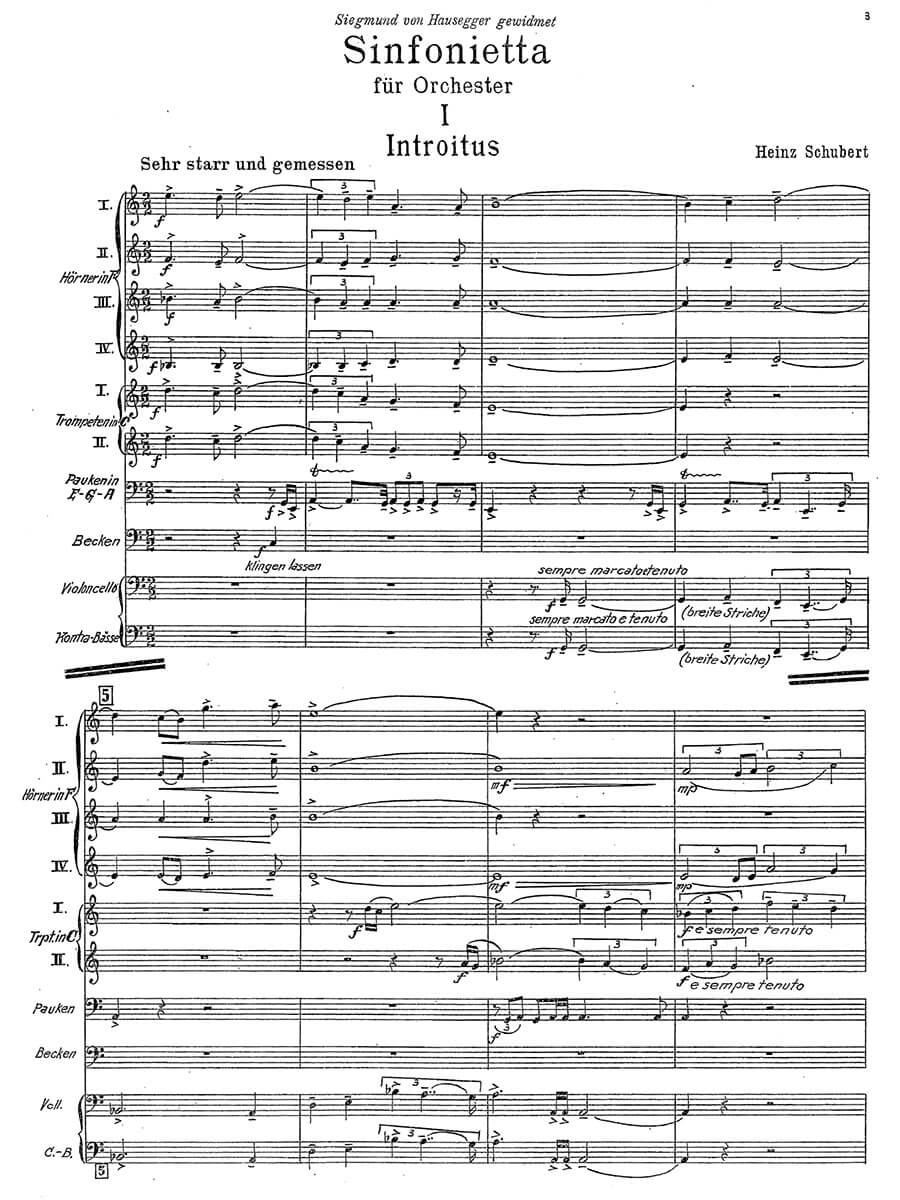Sinfonietta for orchestra
Schubert, Heinz
27,00 €
Heinz Schubert – Sinfonietta (1929) for orchestra
(b. Dessau, 8 April 1908 — d. Oderbruch, February 1945)
I Introitus. Sehr starr und gemessen (p. 3)
II Perpetuum mobile. Lebhaft (p. 8)
III Adagietto. Sehr ruhig (p. 37)
IV Burla. Lustig-gemächlich, nicht zu rasch (p. 44) – Sehr lebhaft und rhythmisch markiert (p. 50) –
Presto subito – Sehr gemächlich (p. 53) – Allmählich immer ruhiger – Schleppend (frei im Tempo) –
Rallentando – Presto (p. 55)
V Finale. Sehr starr und gemessen (im Zeitmaß des Introitus) – Sehr feierlich, gemessen schreitend (p. 65) – Tempo primo (p. 72) – Allargando (p. 75) – Sehr breit und kräftig (p. 76)
Preface
When Heinz Schubert died in World War II, barely thirty-seven years old, he was considered, both as a composer and conductor, one of the most eminent musicians in the circle around Heinrich Kaminski (1886-1946). His death meant a severe loss for German contemporary music. Yet Heinz Schubert was quickly forgotten after the war – by a society that turned its back, as if in flight, on everything that had gone on before, a society in which the prevailing motto was to burn the bridges to the past and to invent the world anew. A symbol for such amnesia is an inner-German solution whose despicable nature still awaits revelation to a larger public: When Die Musik in Geschichte und Gegenwart (MGG, the standard German encyclopedia of music) was published at the end of the 1950s, the editors (who themselves had collaborated with the Nazi régime and now tried to find scapegoats in an attempt to whitewash their own past) decided not to include Heinz Schubert – a composer who had resisted the temptations and pressures of the Third Reich and shown remarkable civil courage. With his name omitted, the memory of his accomplishments, especially after the deaths of his supporters and admirers, was over the years almost completely extinguished. It is symptomatic that in some cases the parts of his works were destroyed when the publisher’s archive had been burnt in the Battle of Berlin in 1945. No doubt, Heinz Schubert from Dessau must be seen, from today’s perspective, as one of the most tragic figures in German music history. …
Read full English and German preface > HERE
| Score No. | 4369 |
|---|---|
| Edition | Repertoire Explorer |
| Genre | Orchestra |
| Size | |
| Printing | Reprint |
| Pages | 94 |
